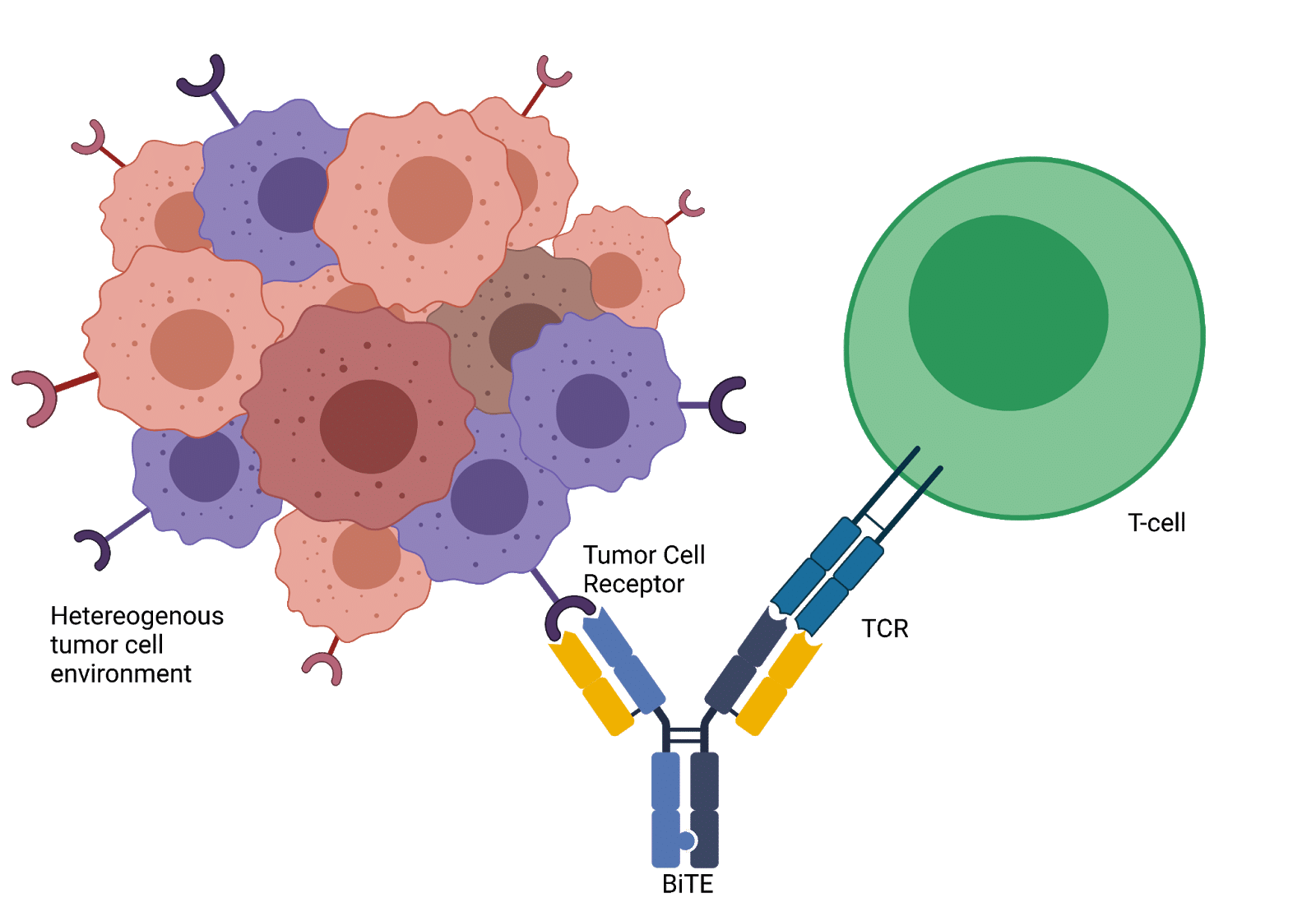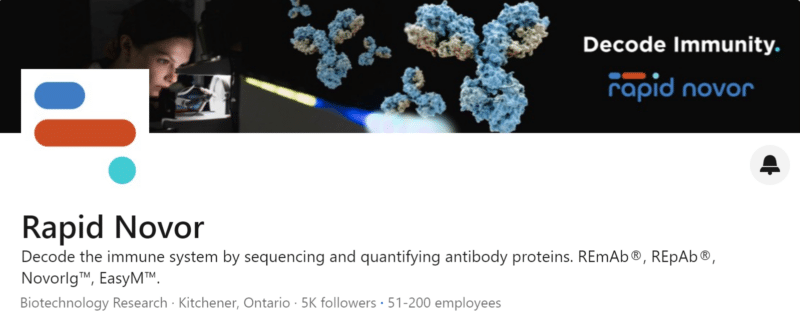 Written by María Gerpe, PhD
Written by María Gerpe, PhD
June 28, 2021
Introduction
Bispecific therapeutics are monoclonal antibodies that carry a specific antigen-binding capability on each arm. Bispecifics are thus capable of having two specificities that can either double the binding affinity of the antibody toward the same antigen (increased avidity), or can now bind to two targets. Bispecifics are most often described as two types: trispecifics and bispecific T-cell engaged antibodies (BiTE).
Types of bispecific therapeutics
A modification of bispecifics was recently discussed by the Nabel lab. Researchers from the Nabel lab, engineered a bispecific into a trispecific, with one specificity in one arms, and two specificities in the other. BiTEs are bispecifics which have specificities for cancer cells, and specificities for T-cells, in essence to recruit a T-cell for destruction of the cancer cell. The Fc region may also recruit additional immune cell enagement. In this blog, we discuss how de novo antibody protein sequencing enabled the patenting of a BiTE by one of the top 10 pharmaceutical companies.

Figure 1. Schematic illustrating the function of bispecific T-cell engaged antibodies (BiTE)
Safeguarding Bispecific T-cell Engaged Antibody development through de novo antibody protein sequencing
Selecting specificities for a Bispecific T-cell Engaged Antibody
A recent patent filed by Janssen exploited the potent antitumor functions of gamma delta T cells through the development of bispecific T-cell engaged antibodies. The gamma delta (γδ) T cells mainly express heterodimers of TRGVγ9 and Vδ2 chains, and the majority, if not all, of these cells exhibit efficient cytotoxicity of target tumor cells. Janssen harnessed this ability using bispecific antibodies to construct a BiTE such that one arm binds to the TRGV9 structure and the other arm binds to a T cell Tumor-Associated Antigen (TAA2) expressed by the tumor cells. Thus, the bispecific antibody bridges the effector and target cells together, resulting in tumor cell killing.
Engineering a Bispecific T-cell Engaged Antibody with the help of de novo antibody protein sequencing
In order to engineer this bispecific, Janssen needed to modify its sequence, but without access to a DNA sequence, it was difficult to proceed. Since they did have a protein sample, they took advantage of Rapid Novor’s REmAb® de novo antibody sequencing services. To design the bispecific, they worked from two antibody sequences which they obtained by sequencing two monoclonal antibodies through REmAb®.
Thanks to our full coverage and high accuracy, we delivered excellent results. The sequences for the two antibodies had a minimum of 30 times coverage over every single amino acid, and hundreds of overlaps, which is why we could confidently claim 100% accuracy. Janssen expressed and purified the sequences of both antibodies. They found that the anti-TCR Vγ9 antibody bound to human γδT cells, as expected, and showed high specificity for TCR Vγ9. They also recapitulated similar results for their anti-TAA2 clone.
Safeguarding discoveries with de novo antibody protein sequencing
Using the two aforementioned in-house validated sequences, they engineered the anti-TRGVγ9/anti-TAA2 bispecific human IgG1 antibody. Following standard in vitro functional screening tests such as T-cell re-directed killing of TAA2-expressing H929 cells, and were able to prove that the BiTE was capable of mediating T-cell cytotoxicity against tumor cells.
At Rapid Novor, we believe that de novo antibody protein sequencing can advance the discovery of therapeutics and diagnostics, but it can also be used to safeguard these discoveries through patents. As other companies have and continue to trust us in the development of patents and publications, we will continue to innovate and ensure that next generation protein sequencing is accessible to researchers to enable their discovery.
Talk to Our Scientists.
We Have Sequenced 10,000+ Antibodies and We Are Eager to Help You.
Through next generation protein sequencing, Rapid Novor enables reliable discovery and development of novel reagents, diagnostics, and therapeutics. Thanks to our Next Generation Protein Sequencing and antibody discovery services, researchers have furthered thousands of projects, patented antibody therapeutics, and developed the first recombinant polyclonal antibody diagnostics.
Talk to Our Scientists.
We Have Sequenced 9000+ Antibodies and We Are Eager to Help You.
Through next generation protein sequencing, Rapid Novor enables timely and reliable discovery and development of novel reagents, diagnostics, and therapeutics. Thanks to our Next Generation Protein Sequencing and antibody discovery services, researchers have furthered thousands of projects, patented antibody therapeutics, and ran the first recombinant polyclonal antibody diagnostics

